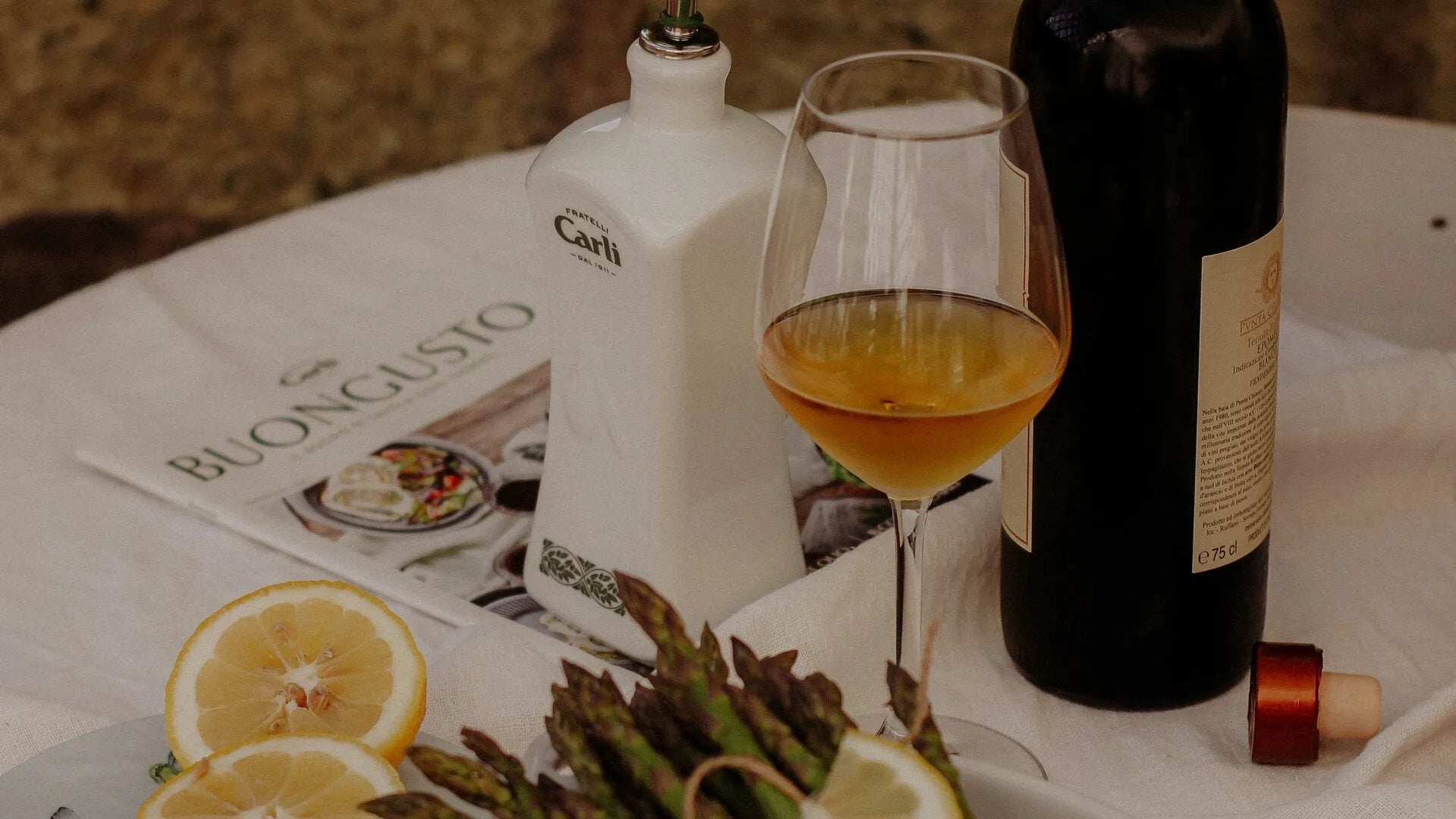
Our Orange Wines
Our Orange Wines
Orange wine, also known as qvevri wine, is produced similarly to red wine. The winemaker does not remove the skin from the white grapes during fermentation. Nothing goes to waste during the maceration: the skin, seeds, and sometimes even the stems are used. This traditional method of producing organic orange wine is as old as Methuselah, with historians tracing its origins back to Georgia around 6000 B.C. Discover and buy good orange wine to experience a whole new meaning of 'vintage' and enjoy the unique flavors of these distinctive white wines.
Our Orange Wines
What is Orange Wine?
Orange wine, also known as white maceration wine, is a type of wine produced from white grapes but fermented using a method typically reserved for red wines. Unlike traditional white wines, where grapes are pressed immediately after harvesting to separate the juice from the skins, orange wine is made by fermenting the juice together with the skins, seeds, and sometimes even the stems of white grapes. This technique, known as skin-contact fermentation or maceration, gives the wine its distinctive color and unique characteristics.
The production of orange wine begins with harvesting ripe white grapes. The grapes are then destemmed and left to ferment with their skins, seeds, and occasionally stems. This maceration process can last from a few days to several months, depending on the desired style chosen by the winemaker. Alcoholic fermentation occurs in the presence of the skins, extracting pigments, aromas, and tannins typically associated with red wines. After fermentation, the wine may be aged in tanks, wooden barrels, or, in the case of traditional Georgian methods, in large clay vessels called qvevris.
Orange wine is distinguished by its color, ranging from pale amber to deep orange, a result of the prolonged skin contacts of white grapes. Its aromas and flavors exhibit rich complexity, including notes of dried fruits, honey, nuts, spices, and sometimes dried flowers. The presence of tannins, usually absent in white wines, gives orange wine a more robust structure and a slightly astringent texture.
Orange wine offers a unique tasting experience that bridges the characteristics of white and red wines. It is particularly appreciated for its aromatic complexity and versatility. Aromatically, it may include dried fruits, spices, honey, and herbs. Thanks to its tannic structure, it can complement a wide variety of dishes. Many orange wines are produced using organic or biodynamic methods, without the addition of chemicals or commercial yeasts, making them more natural and authentic wines.
Georgian Origins and Qvevris
Approximately 8,000 years ago, Georgians began producing wine using a unique method that continues to endure today. This technique relies on the use of large clay vessels buried underground, known as qvevris, to maintain a constant temperature. These containers allow for natural maceration and fermentation of grapes. To produce orange wine, white grapes are left to ferment with their skins, and sometimes with their stems and seeds, imparting the wine with its amber color and tannic characteristics.
Georgian winemaking in qvevris is distinctive and gives orange wine its complex aromas and unique texture. Prolonged maceration not only extracts color from the grape skins but also extracts aromas and tannins, adding depth and complexity to the wine.
It wasn't until the 1990s that orange wine began to gain popularity in France. Inspired by Italian and Slovenian techniques, as well as a growing interest in natural winemaking methods, French winemakers began experimenting with macerating white grapes. Today, several French domains produce orange wine, contributing to the diversity and richness of this style of wine.
The Natural and Organic Dimension of Orange Wine
Orange wine is often associated with environmentally friendly viticultural practices. Many producers employ organic or biodynamic methods, avoiding synthetic chemicals. This approach preserves vineyard biodiversity and yields authentic and expressive wines.
Orange wines, also known as amber wines, are frequently vinified without the addition of commercial yeasts or sulfites, placing them in the category of natural wines. Spontaneous fermentation with indigenous yeasts authentically reflects the terroir, imparting unique aromatic complexity.
By eschewing sulfites, producers prioritize purity and transparency, offering wines that evolve naturally. This approach meets the growing demand from conscientious consumers who support sustainable production methods. Orange wine perfectly embodies this philosophy of respect and quality.
With the growing popularity of natural and organic wines, buying orange wine is becoming easier. Many specialty wine shops and online sites offer a selection of good orange wines, often accompanied by tasting tips and wine pairings. Whether you're a beginner or an expert, it's always intriguing to ask for recommendations and read reviews to uncover hidden gems from this traditional and natural winemaking.





